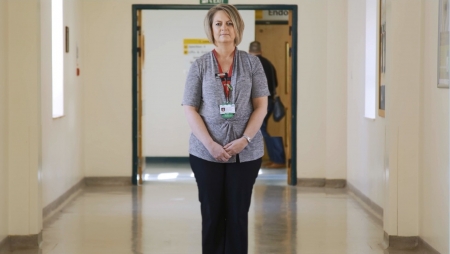
Michelle Fletcher, is the Macmillan Living With And Beyond Cancer Project Manager at Rotherham Hospital and a Macmillan Clinical Nurse Specialist in Breast Care.
Michelle explains how the breast team are using holistic needs assessments to improve care and support in Rotherham:
"As part of Rotherham Hospital’s specialist Macmillan breast cancer team we’ve been using Holistic Needs Assessments (HNA) for over five years.
We use HNA because it informs the conversations we have with our patients by putting them and their concerns at the centre, and in some cases it can save time.
Using HNA to have a conversation is not something we do in addition to our job, we’ve been having conversations with people for years.
However, our focus now is about what the patient wants to talk about rather than what the Health Care Professional thinks the patient wants to talk about.
How we got here
Before we started using HNA everyone had an hour and a half long conversation structured by our preconceptions.
Now we use HNA as a guide, our conversations could still last up to an hour and a half, however they may only last 30 minutes.
HNA allows us to fine tune the conversation by helping to structure the discussion; we can give more resource to the people who really need it.
Every eligible person diagnosed with breast cancer is offered a HNA; 98% of people take us up on the offer.
We have responded to the needs of our patients by offering a HNA at around the time of diagnosis and at the end of treatment.
Crucially, we explain that this can be offered at any point throughout the journey when a person feels overwhelmed by what is happening to them.
Making it even better
Currently every conversation we have is recorded with an action plan on paper; we’re now considering the possibility of using electronic Holistic Needs Assessment (eHNA).
eHNA will allow us flexibility around where we have the conversation and what information the patient can submit prior to us meeting.
There is also the potential to make care more integrated with direct links through to support services and automatic referrals generated.
I’m excited about the prospect of using technology to support our work but this would never take away from the importance of meeting someone face to face and just listening.
As cancer professionals there’s a danger we get hung up on HNA as a tool, it’s not a magic wand, the tool we use is irrelevant. It’s about how you achieve a meaningful conversation with a patient.
My question to teams who are not doing HNA is, how can you have a meaningful conversation without it?"
